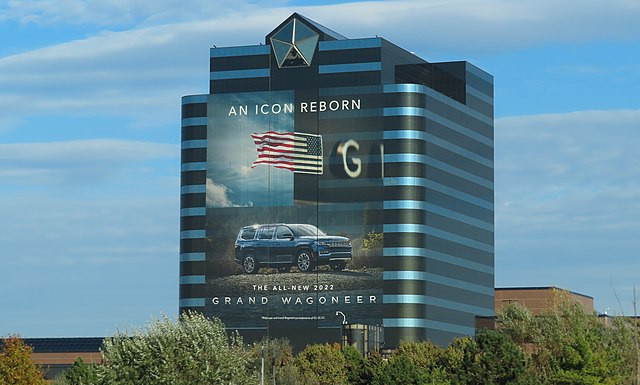Stellantis, the world's fourth-largest automaker by sales, sharply reduced its 2024 profit outlook on Monday, warning of deeper-than-expected cash burn and mounting challenges in its U.S. and global operations. The company, which owns iconic brands like Chrysler, Jeep, Fiat, and Peugeot, revised its forecast to reflect deteriorating market conditions, particularly in the U.S. and China, two of its largest markets.
In its updated guidance, Stellantis revealed that it now expects an adjusted operating profit margin between 5.5% and 7%, significantly lower than the double-digit margin that had been anticipated earlier. The company also projected negative cash flow of between €5 billion and €10 billion ($5.58 billion-$11.17 billion), compared to a previous forecast of positive cash flow. This revised outlook led to a sharp decline in Stellantis' share price, which dropped by as much as 14%, wiping roughly €6 billion ($6.7 billion) off its market value.
The automaker attributed its declining fortunes to "weakening global demand and intensified competition," particularly from Chinese automakers, which have been aggressively expanding their presence in key markets. "Competitive dynamics have intensified due to both rising industry supply and increased Chinese competition," Stellantis said in a statement. These challenges echo recent struggles faced by other European automakers, including Volkswagen, which also cut its profit outlook on Friday.
Stellantis' problems are particularly acute in the U.S., where its once-lucrative sales of Jeep SUVs and Ram pickup trucks have plummeted. The company has been left with high inventory levels, forcing it to offer steep discounts to clear out dealer lots. As demand has softened, Stellantis' U.S. operations saw a 40% drop in operating profit during the first half of the year. To address these issues, Stellantis plans to increase consumer discounts and reduce production more aggressively than previously announced.
Stellantis CEO Carlos Tavares, who visited Detroit last month to develop a strategy to fix the company's struggling North American operations, is now under increasing pressure to stabilize the automaker's U.S. business. The company's efforts to revive sales include laying off up to 2,450 factory workers and halting production of its Ram 1500 Classic truck. However, Tavares faces strong opposition from the United Auto Workers (UAW) union, which has accused Stellantis of breaking contract promises and is pushing for a potential strike.
The challenges in the U.S. mirror broader difficulties in the global auto industry. Aston Martin, the British luxury carmaker, also issued a profit warning on Monday, citing supply chain disruptions and weakening demand in China. Aston Martin's shares fell by as much as 26% following its announcement, while Stellantis shares dropped 13% in early trading. Volkswagen, BMW, and Mercedes have all reported similar struggles with profitability, with each issuing warnings about the impact of slowing sales in major markets and rising competition from Chinese automakers.
Stellantis' inventory issues in the U.S. reflect a broader problem for automakers who have been hit by weakening consumer demand in the post-pandemic economy. The automaker's North American dealers have criticized the company for its slow response to falling sales and high production levels, which have led to ballooning inventory levels and necessitated deep discounts to move vehicles.
Compounding Stellantis' challenges is the increasing pressure from electric vehicle (EV) competition, especially from Chinese automakers who have aggressively expanded their EV sales in Europe and the U.S. The shift to EVs has created additional strain on legacy automakers like Stellantis, which are scrambling to adapt to new market dynamics while also facing rising input costs and supply chain disruptions.
In response to these challenges, Stellantis has pledged to take more drastic steps to address its North American performance issues. "Decisions to significantly enlarge remediation actions on North American performance issues" will be a top priority, the company said, though it did not offer further details. Tavares and his team face the difficult task of navigating through these headwinds while maintaining shareholder confidence.
Stellantis' struggles come amid a larger shake-up in the global automotive industry, where European carmakers are losing ground to their Chinese counterparts. The latter have been bolstered by strong domestic markets and are now making significant inroads into Europe and other international markets. According to ING analysts, European carmakers have been "increasingly put under pressure" as EV sales fail to match pre-pandemic levels, and they face the dual challenges of adapting to new technologies while competing with more agile Chinese competitors.
Despite the bleak outlook, Stellantis remains a key player in the global automotive market, with a strong portfolio of brands and a significant presence in Europe and the U.S. The company's ability to navigate through these challenges will be critical in determining its long-term success. Investors and industry analysts alike will be closely watching the company's next moves as it seeks to stabilize its U.S. operations, regain market share, and counter the growing threat posed by Chinese automakers.





